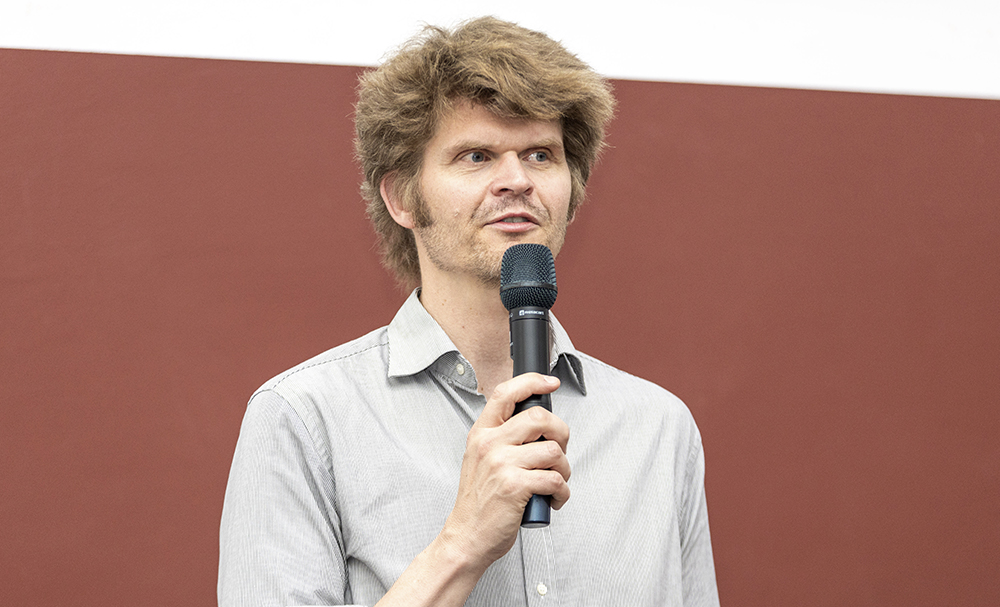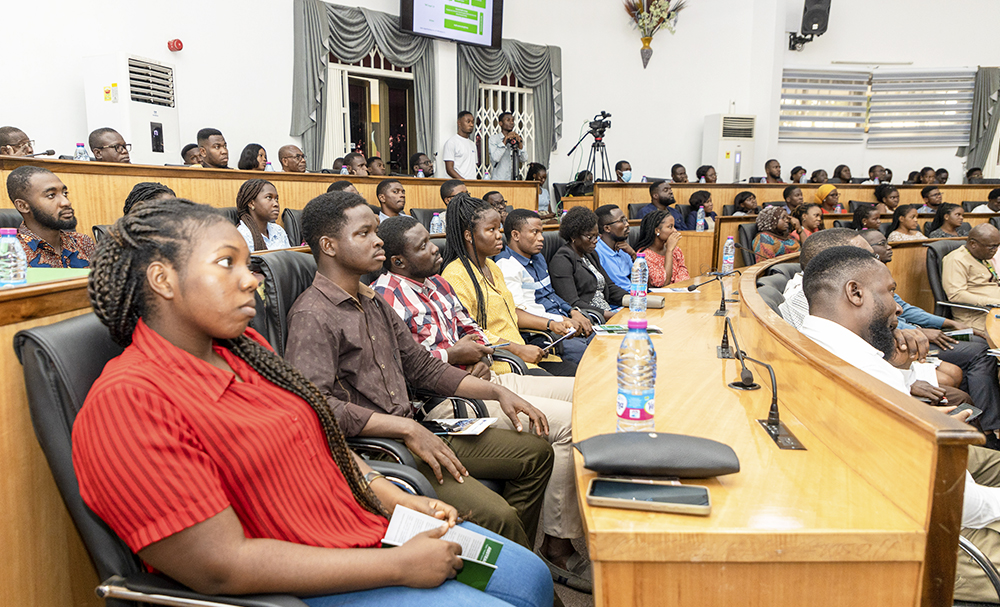The President of the German-West African Centre for Global Health and Pandemic Prevention(G-WAC), Pd. Dr. Med. Wilm Quentin, has delivered a public lecture on the topic: “Health Systems after the Pandemic: Building Back Better. The public lecture which was held by G-WAC, a research Centre under the College of Health Sciences (CHS) of the Kwame Nkrumah University of Science and Technology (KNUST) saw attendance from faculty, researchers, students, health professionals and administrators, and the general public.
In his welcome address, the Acting Director of G-WAC, KNUST, Dr. John Humphrey Amuasi, said the COVID-19 pandemic has had a devastating impact on people, societies, and economies. It was an unprecedented shock to health systems worldwide. But it also highlighted the importance of having strong and resilient health systems that can deal with unexpected shocks. Dr. Amuasi continued that as the pandemic has transitioned to the endemic phase, it is time to take stock and explore if there are lessons for the future. And to question how health systems can build back better, what needs to be done to make them stronger and more inclusive, and better prepared to prevent future epidemics. The G-WAC is addressing the existential threat of global pandemics to the health and welfare of people. It focuses on transdisciplinary research targeting both the main drivers of pandemics and the key pillars of resilient health systems and hoped the lecture will shed more light on creating a resilient health system.

Delivering the lecture, Dr. Med. Wilm Quentin of the Technical University of Berlin's (TUB) Department of Health Care Management stated that the COVID-19 pandemic was confirmed to have caused 767 million instances of sickness and almost 7 million fatalities. The epidemic also caused a global economic downturn, which resulted in a 3.1 percent decline in the Gross Domestic Product (GDP) in 2022. Dr. Quentin noted that it has an impact on health systems by disrupting crucial medical services, including care for non-communicable diseases (NCD) and child immunisations.
According to the President of G-WAC, there is also the need for resilient systems for universal health coverage and health security after COVID-19. It is important to build back health systems. He referred to health systems as people, institutions, and resources arranged together in accordance with established policies, to improve the health of the people they serve, while responding to people’s legitimate expectations, protecting them against ill health through a range of activities where the primary intent is to improve health.
To build back, Pd. Dr. Quentin advocated for investments in the World Health Organisation’s Health System Building Blocks comprising: Leadership and governance, Service delivery, Health system financing, Health workforce, medical products such as vaccines and technologies, and Health information systems. He added that health systems should be strengthened by investing in health systems to reach universal health coverage (UHC) and the Sustainable Development Goals (SDGs). SDG 1 of ending poverty in all its manifestations, SDG 4 on inclusive and equitable quality education for all, SDG 5 which seeks to achieve gender equality and empower all women, SDG 16 which promotes peaceful and inclusive societies for sustainable development, provide access to justice for all, SDG 3 to ensure healthy lives and promote wellbeing for all at all ages and SDG 8 to promote sustained, inclusive and sustainable economic growth, full and productive employment and decent work for all.
The TUB Lecturer said health systems globally must be strengthened and made more resilient to achieve the interrelated goals of Universal Health Coverage and Global Health Security. He also explained that achieving UHC means progress on three dimensions, that is depth: What proportion of the benefit-cost is covered, Scope: which benefits are covered, and Breadth: who is covered. Beyond health systems that are healthy in all policies and health for all policies, there should be global security. He explained global health security as the existence of strong and resilient public health systems that can prevent, detect, and respond to infectious disease threats wherever they occur. He outlined the pillars of health security such as prevention, detection and reporting, rapid response, health system, compliance with international norms, and risk environment.
Bringing it all together, He called for efforts to focus on synergies between UHC and health security while strengthening one health approach for governance, information, human resources, better service delivery, and knowledge exchange for better policies and research. The G-WAC President was of the view that one health approach can reduce the risk and size of future shocks. He threw more light on one health concept as one that recognises the health of humans, domestic and wild animals, plants, and the wider environment (including ecosystems). That is an integrated, unifying approach that aims to sustainably balance and optimise the health of people, animals, and ecosystems.
Ending the Lecture, he commended Ghana’s health system as impressive, it has achieved 50 percent National Health Insurance coverage, has a strong focus on primary health care, and has managed COVID-19 relatively well but could do better.

















